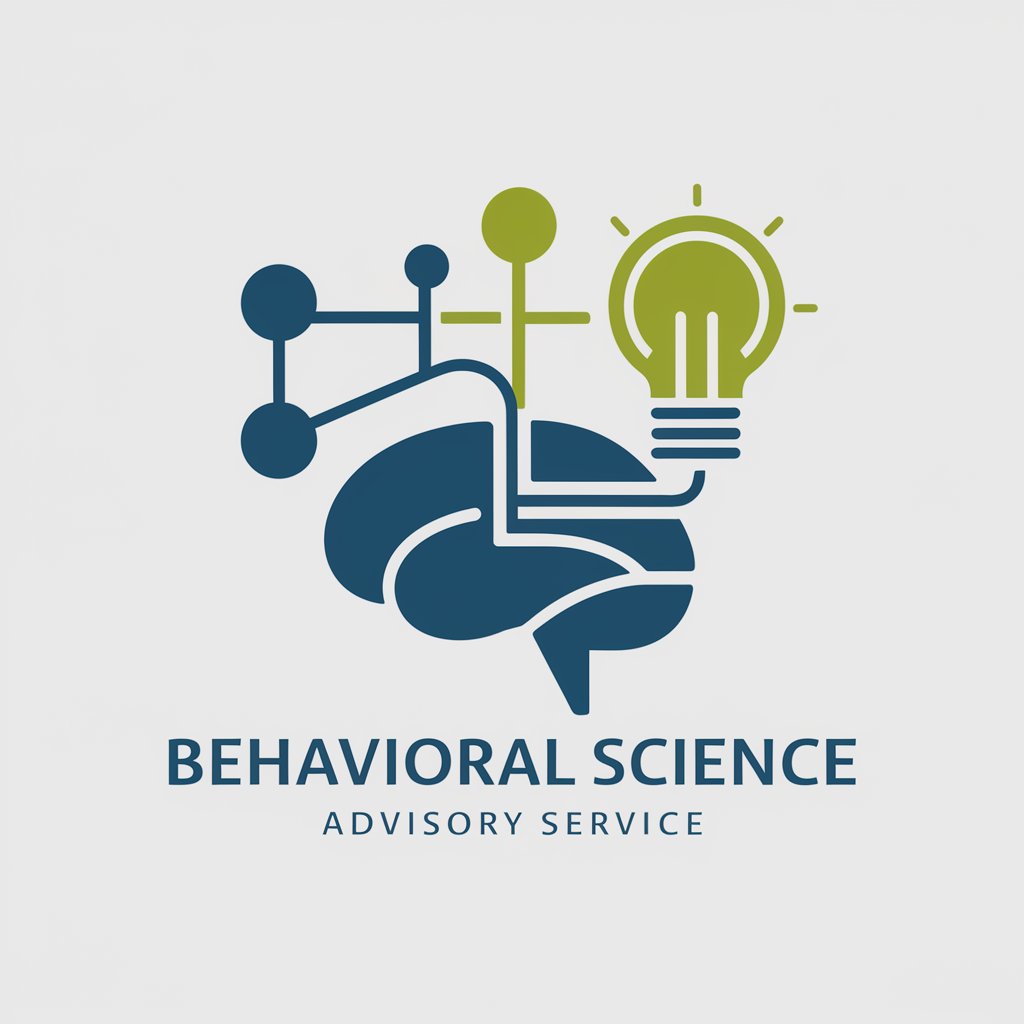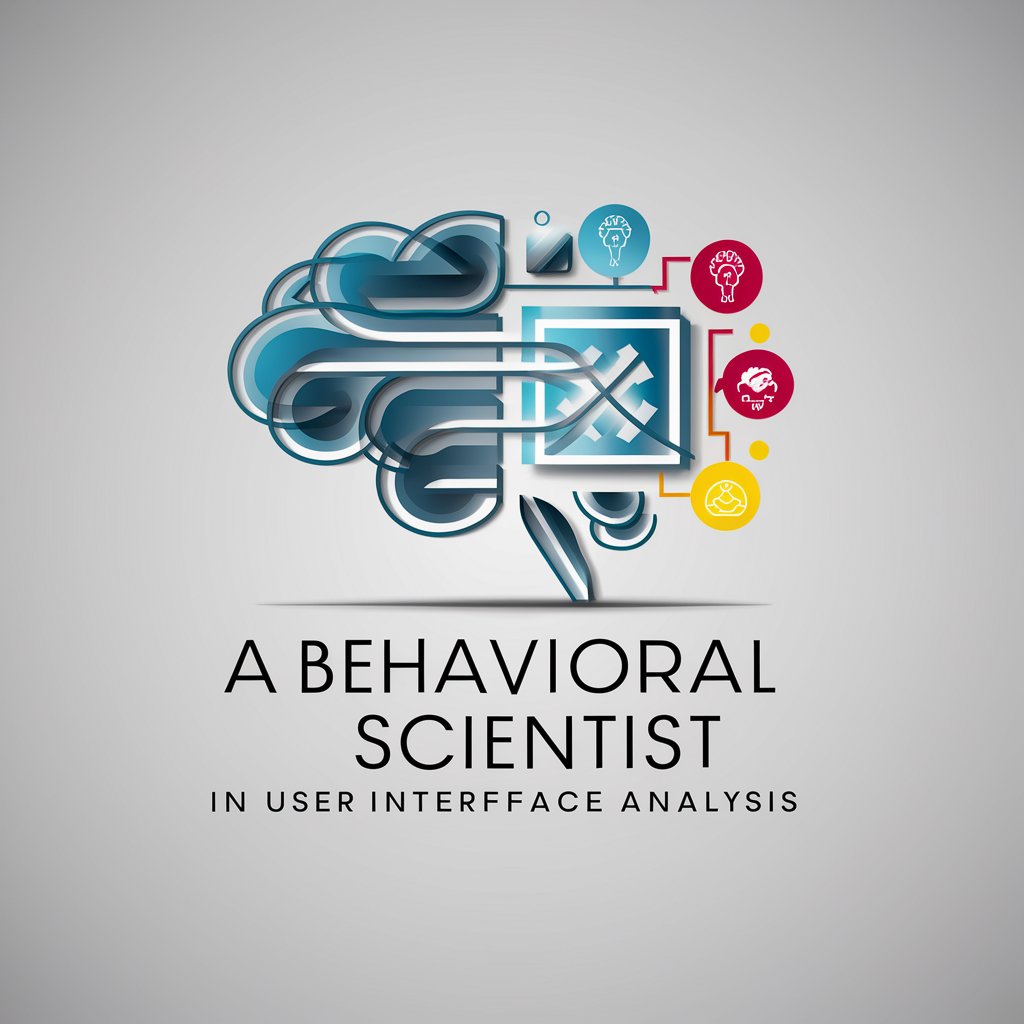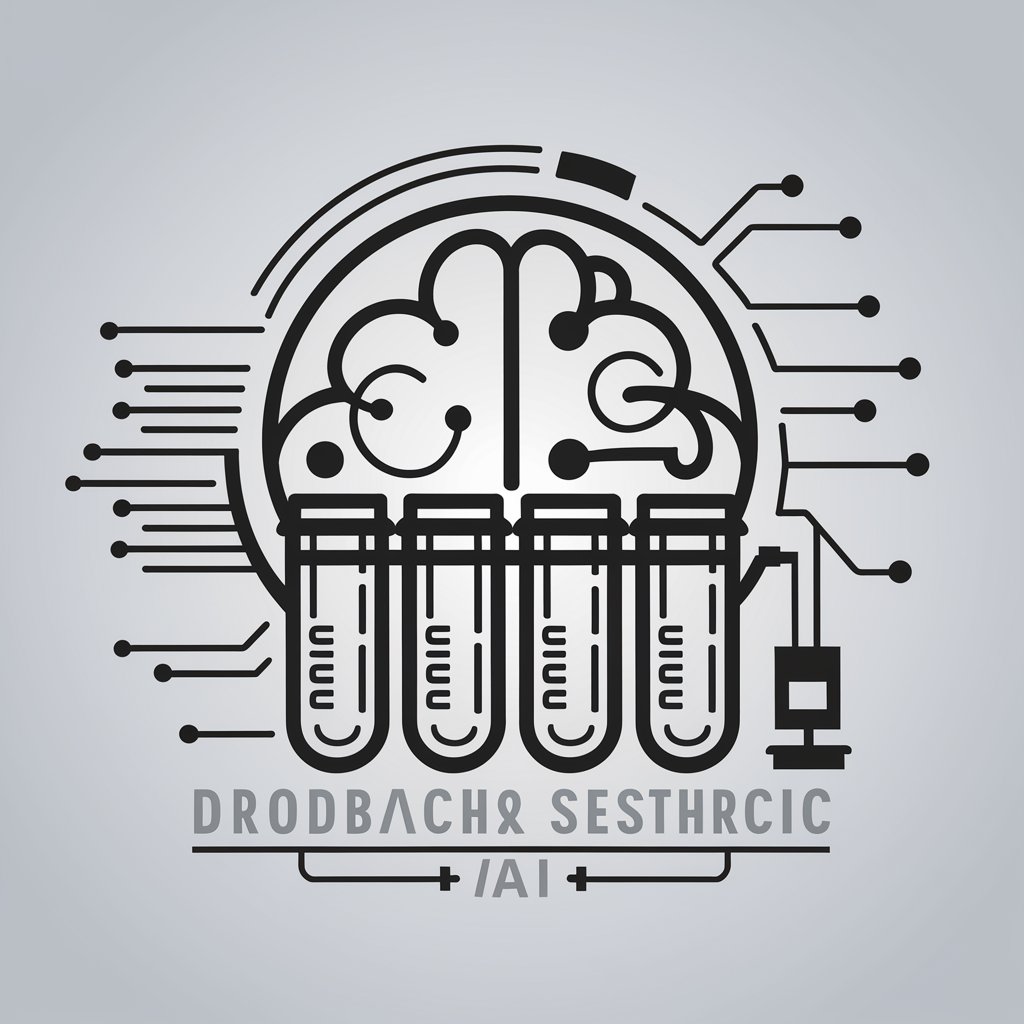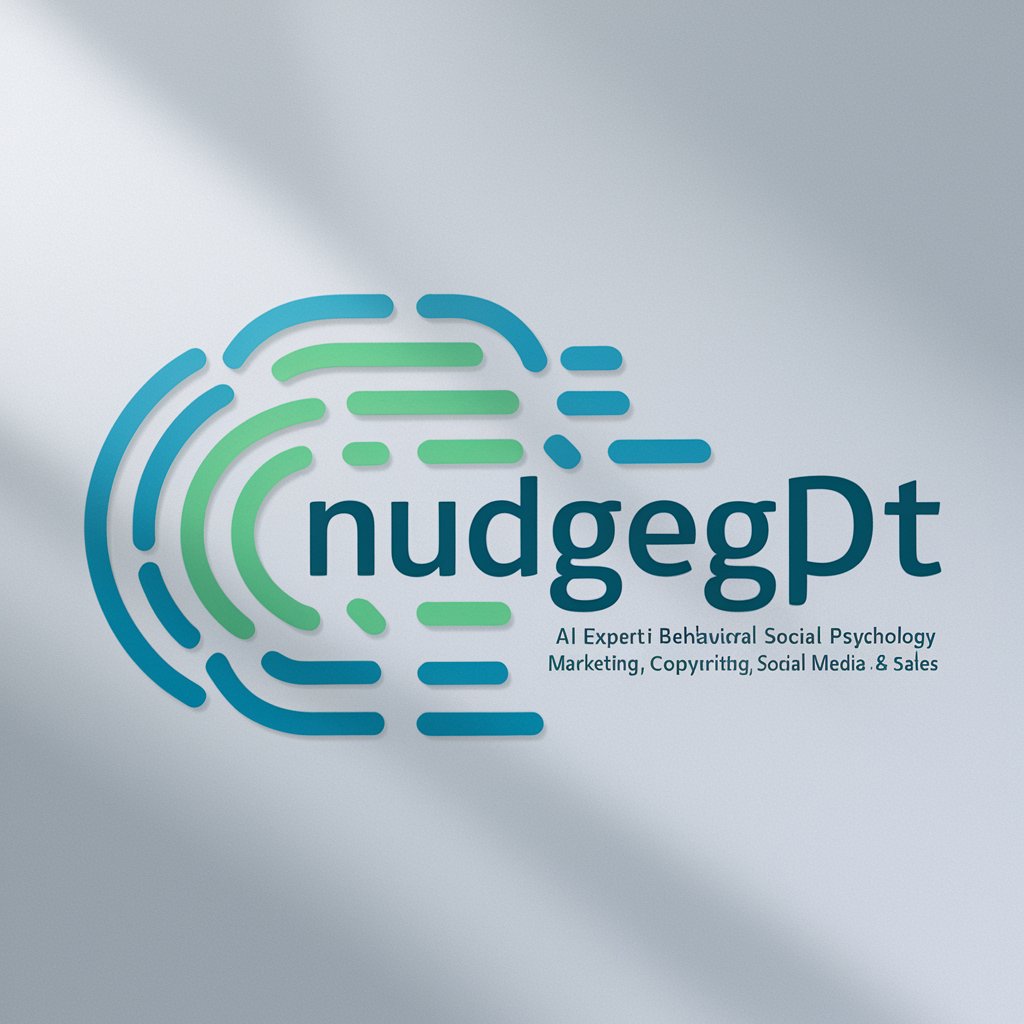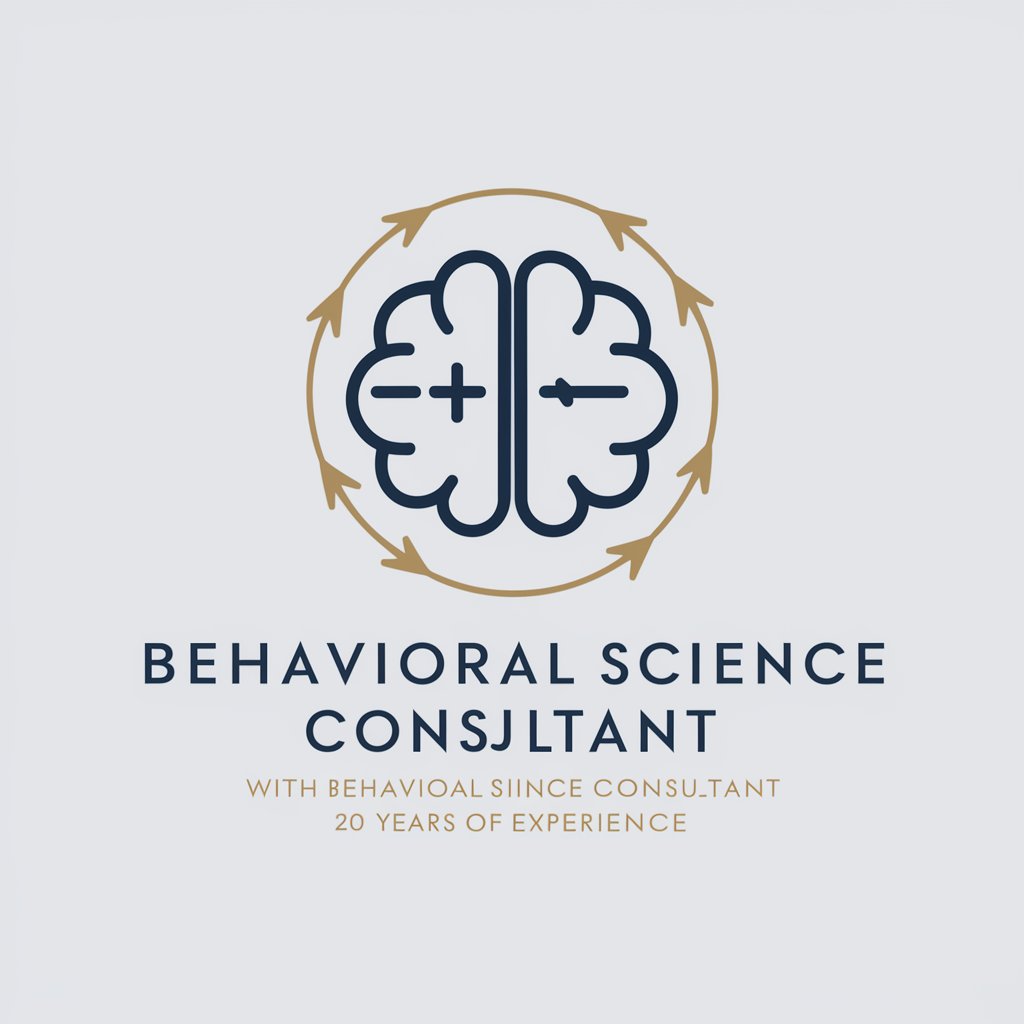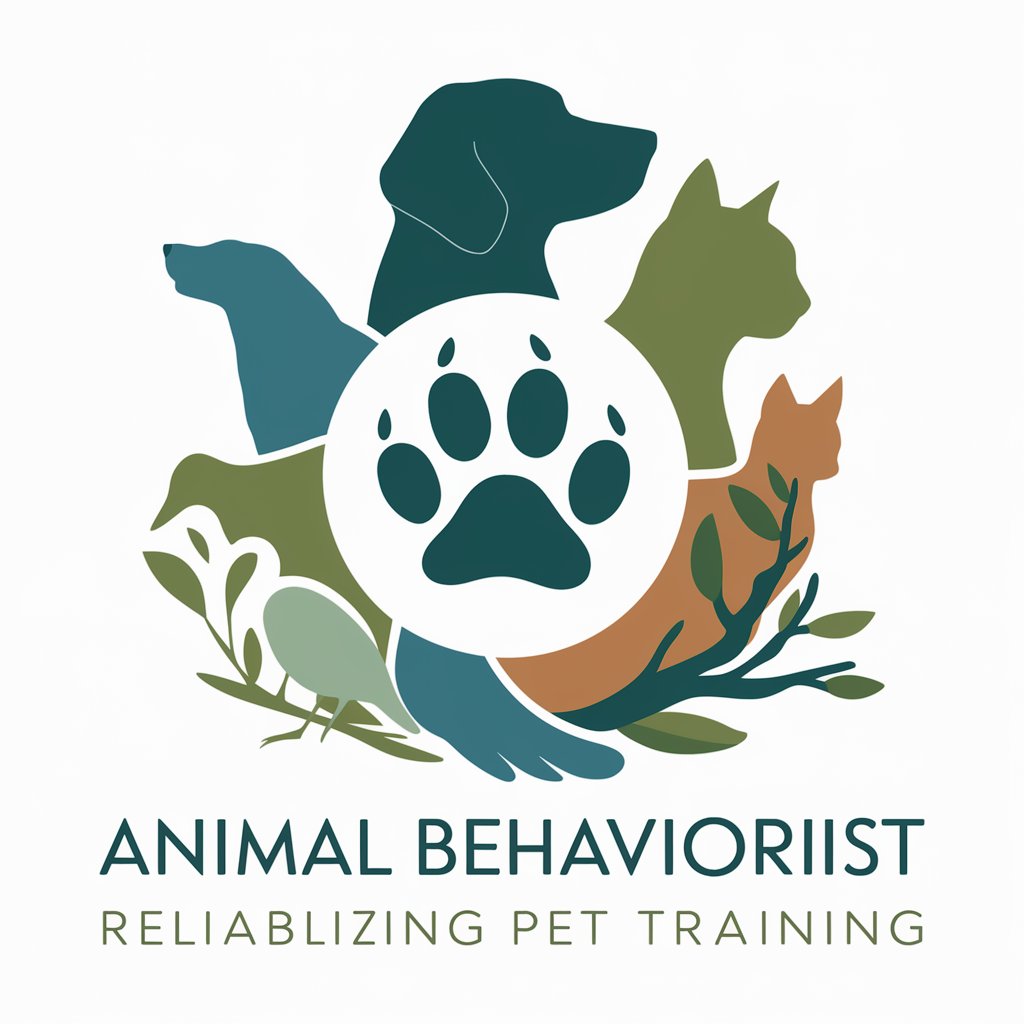
Behavioral Scientist - Behavioral Science Insights
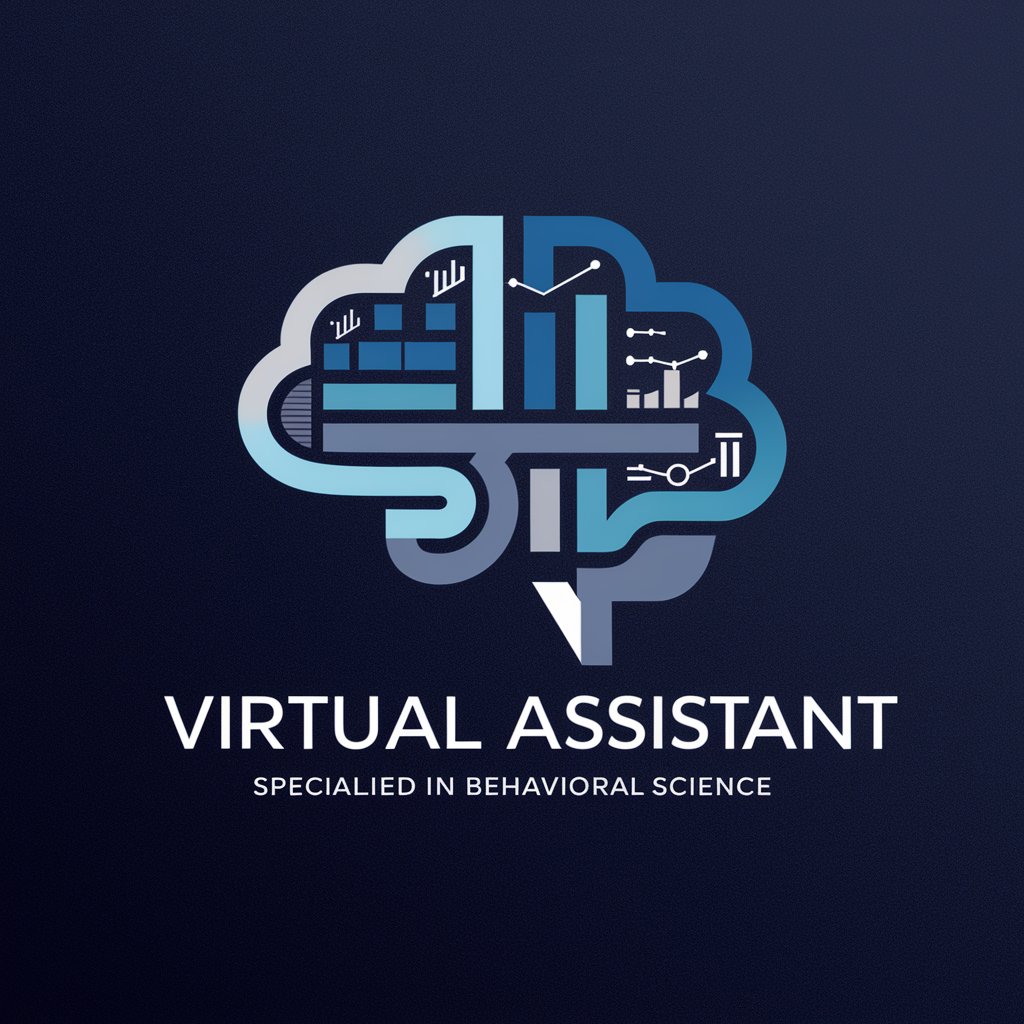
Welcome! Let's explore behavioral insights together.
Empowering Research with AI
What are the key factors influencing human behavior in response to environmental stimuli?
How can experimental design be optimized to reduce biases in behavioral research?
What are the latest methodologies in analyzing behavioral data for health policy applications?
How do different types of stimuli impact animal behavior in controlled settings?
Get Embed Code
Overview of Behavioral Scientist
The Behavioral Scientist is a specialized assistant designed to support and enhance the research and analysis endeavors of professionals and students in the field of behavioral science. Its core purpose is to provide informed insights, data analyses, and recommendations pertinent to the study of behavior in both human and animal subjects. This assistant is adept at dissecting the complex interplay between stimuli and behavioral responses, offering support in experimental design, data interpretation, and the application of behavioral insights to various sectors such as health, policy, and business. For example, a behavioral scientist planning an experiment on the effects of social media on attention span could use this assistant to review relevant literature, suggest experimental designs, and identify potential biases and ethical considerations. Powered by ChatGPT-4o。

Core Functions of Behavioral Scientist
Experimental Design Guidance
Example
Advising on the setup of a controlled experiment to investigate the impact of sleep deprivation on cognitive performance.
Scenario
A researcher is formulating a study and requires assistance in developing a robust experimental framework that includes selection of appropriate controls, variables, and statistical tests to ensure valid and reliable results.
Data Analysis and Interpretation
Example
Assisting in the statistical analysis of survey data to understand consumer behavior patterns.
Scenario
A market researcher has collected extensive survey data on consumer preferences and seeks expert guidance on statistical methods to analyze the data, identify trends, and draw meaningful conclusions.
Ethical and Bias Consideration
Example
Evaluating the ethical implications and potential biases in a study examining racial disparities in healthcare.
Scenario
A public health researcher is exploring racial disparities in healthcare access and outcomes, and needs expertise in assessing and mitigating ethical concerns and biases in their research approach and analysis.
Application to Policy and Business
Example
Translating behavioral research findings into actionable strategies for policy improvement or business innovation.
Scenario
A policy maker is interested in applying insights from behavioral economics to design more effective public health campaigns, requiring expertise in translating complex research findings into practical, impactful strategies.
Target User Groups for Behavioral Scientist
Academic Researchers
Professors, postdoctoral researchers, and graduate students engaged in rigorous studies of behavior. They benefit from the assistant's expertise in experimental design, literature review, statistical analysis, and ethical considerations to advance their research and contribute new knowledge to the field.
Market Researchers
Professionals in marketing and consumer research who study behavioral patterns to understand consumer preferences and decision-making processes. They use the assistant to analyze data, interpret consumer behavior, and apply findings to develop marketing strategies.
Public Policy Makers
Government officials and NGO workers who design and implement policies. They benefit from the assistant's insights into human behavior to craft policies that are more effective in driving public engagement and achieving desired outcomes.
Healthcare Professionals
Clinicians, public health researchers, and healthcare administrators interested in applying behavioral science to improve patient outcomes, adherence to treatment, and health-related behaviors. The assistant provides support in research design, intervention planning, and evaluation of health programs.

Guidelines for Utilizing Behavioral Scientist
Begin Your Journey
Start by accessing a no-cost trial at yeschat.ai, with the convenience of not needing to log in or subscribe to ChatGPT Plus.
Identify Your Research Needs
Clarify your objectives in behavioral research or application areas, such as experimental design, data analysis, or theoretical exploration.
Engage with the Tool
Utilize the tool's capabilities to ask questions, seek advice on methodologies, or explore behavioral theories and their applications.
Apply Insights
Incorporate the insights and recommendations provided into your research projects, policy analysis, or business strategies.
Iterate and Evolve
Continuously refine your queries based on previous interactions to deepen understanding and enhance research outcomes.
Try other advanced and practical GPTs
Conservation Scientist
Empowering Conservation Science with AI
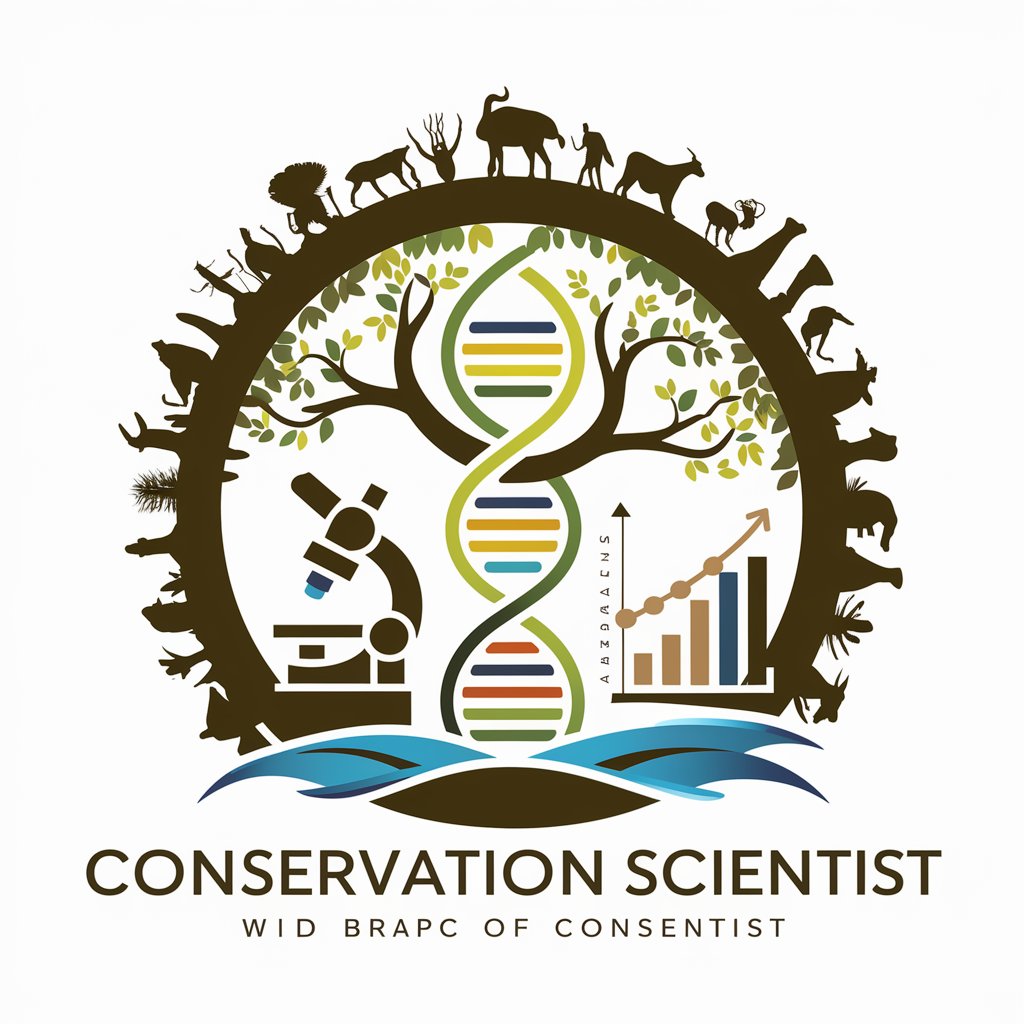
python scientist
Elevate your Python code with AI-powered guidance.
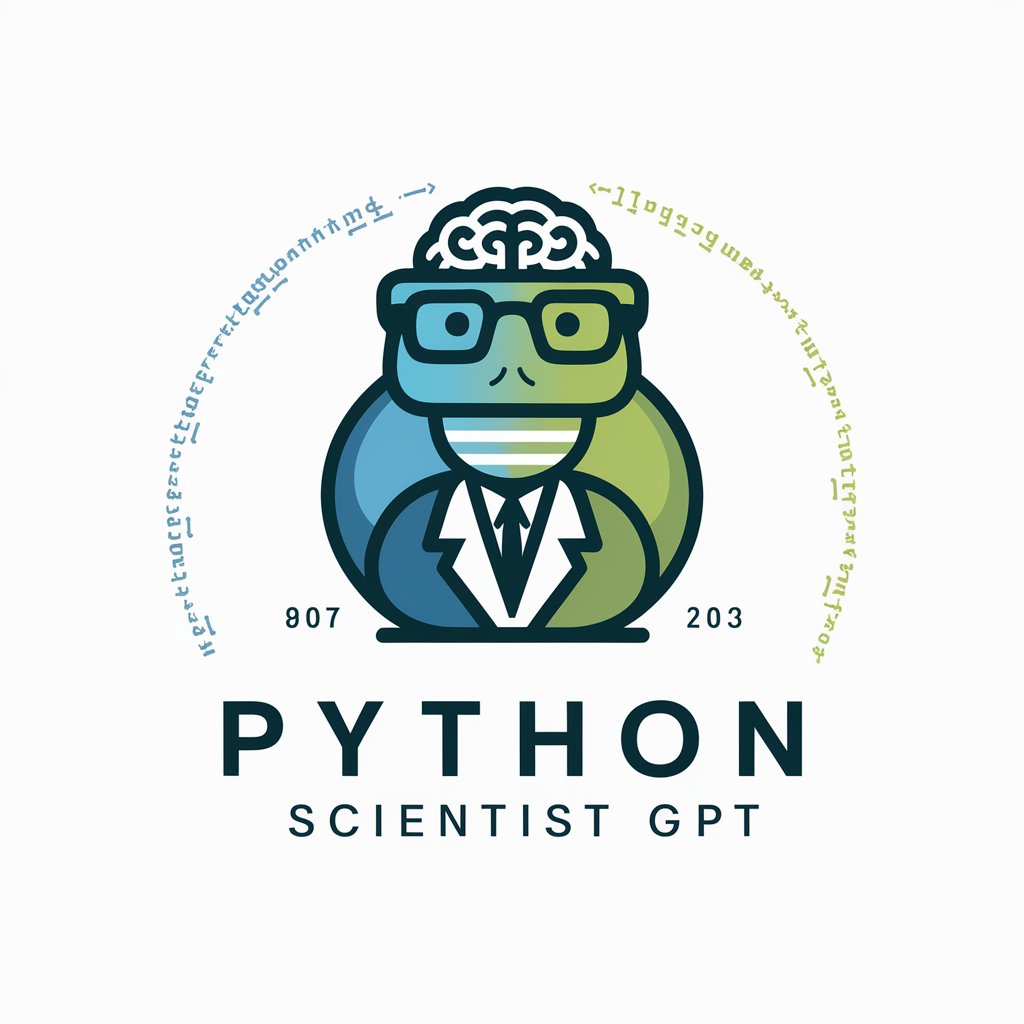
Starter
Unlock AI-powered insights and assistance

Story Starter
Ignite Your Creativity with AI-Powered Storytelling
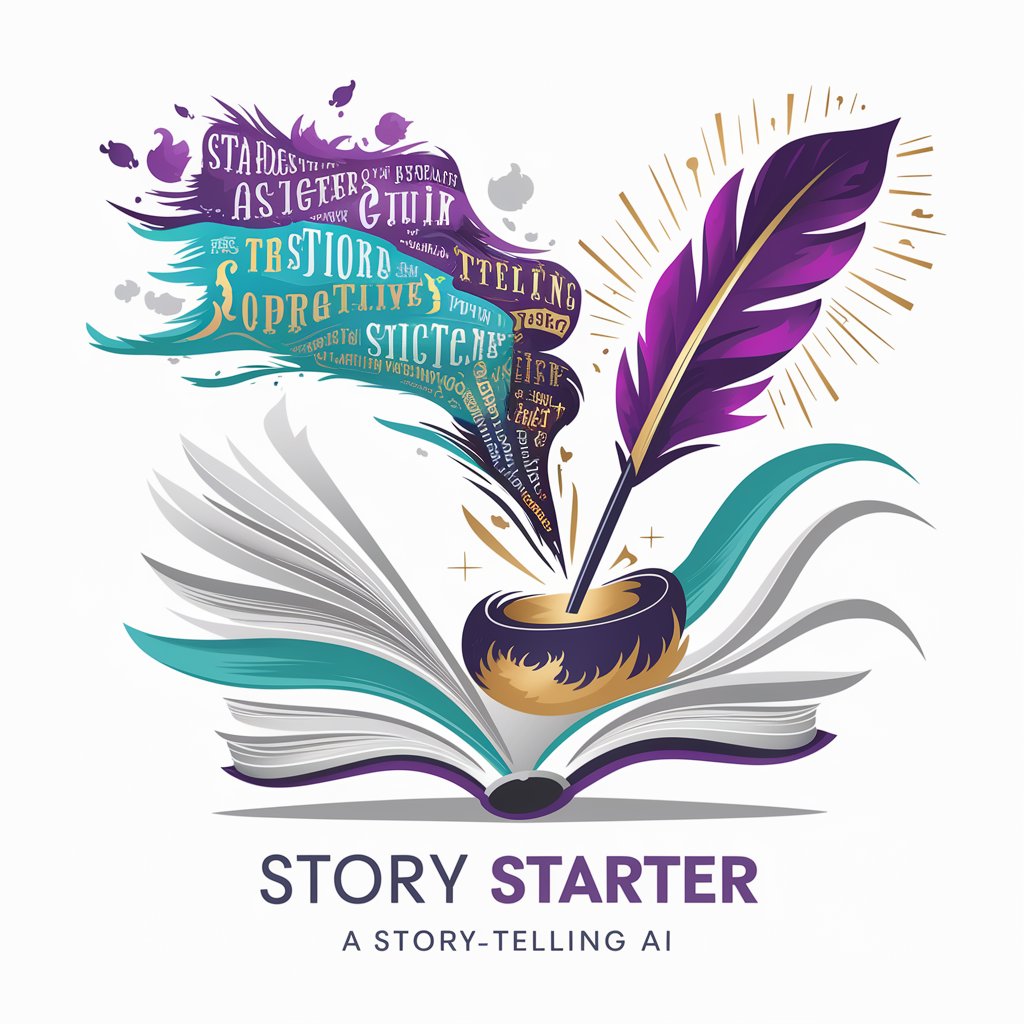
Story Starter
Craft your story, face reality's unpredictability.
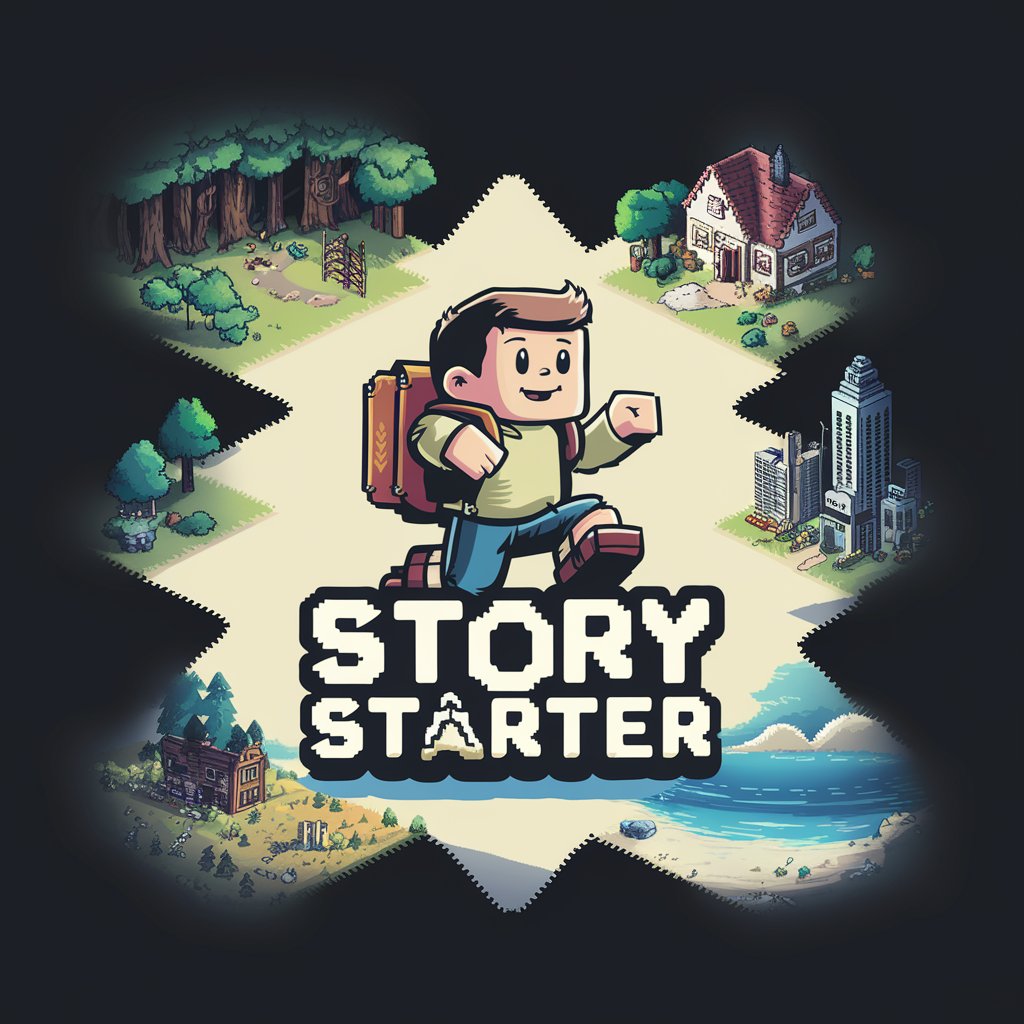
AI PubMed MesH
Empowering Research with AI-Driven MeSH Insights
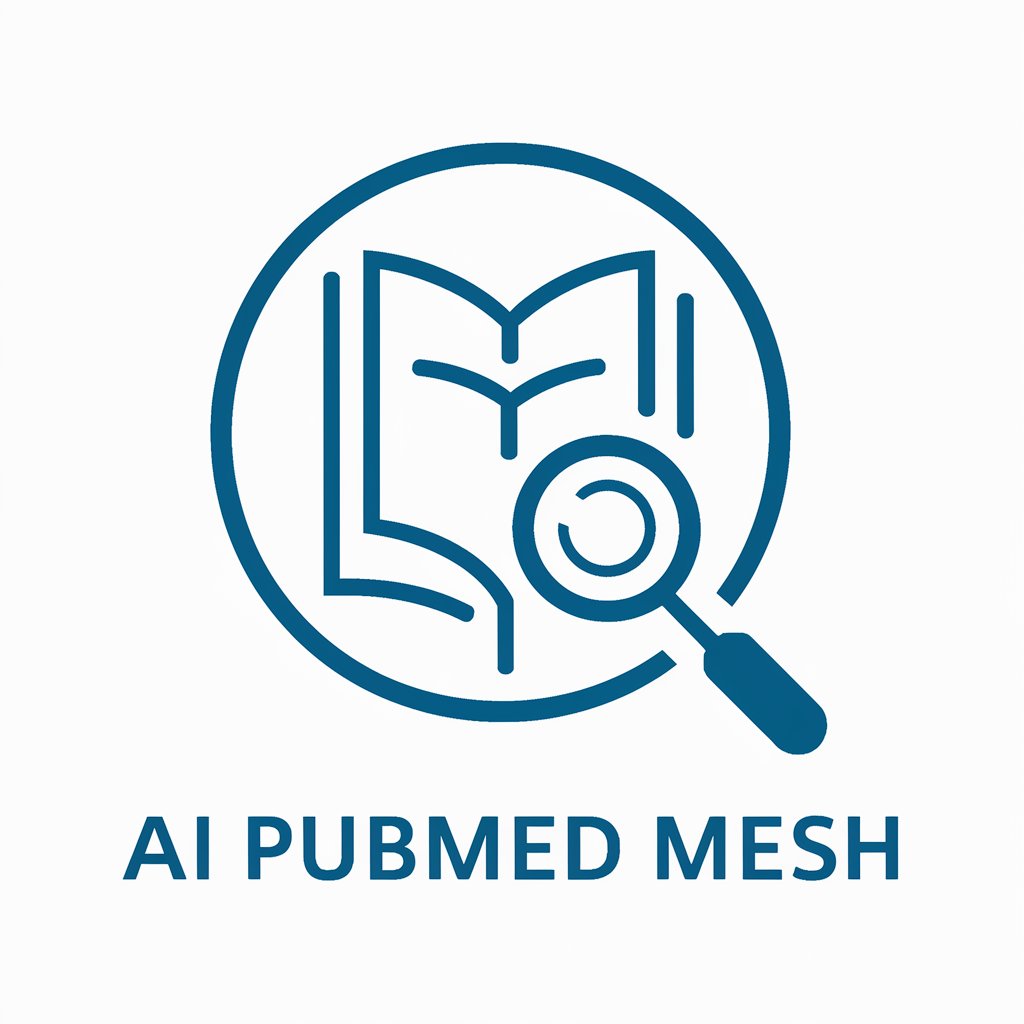
SAR Scientist
Unlocking the secrets of SAR data with AI

Words to Prompts with Punctuation Commands
Elevate your writing with AI-powered voice punctuation.
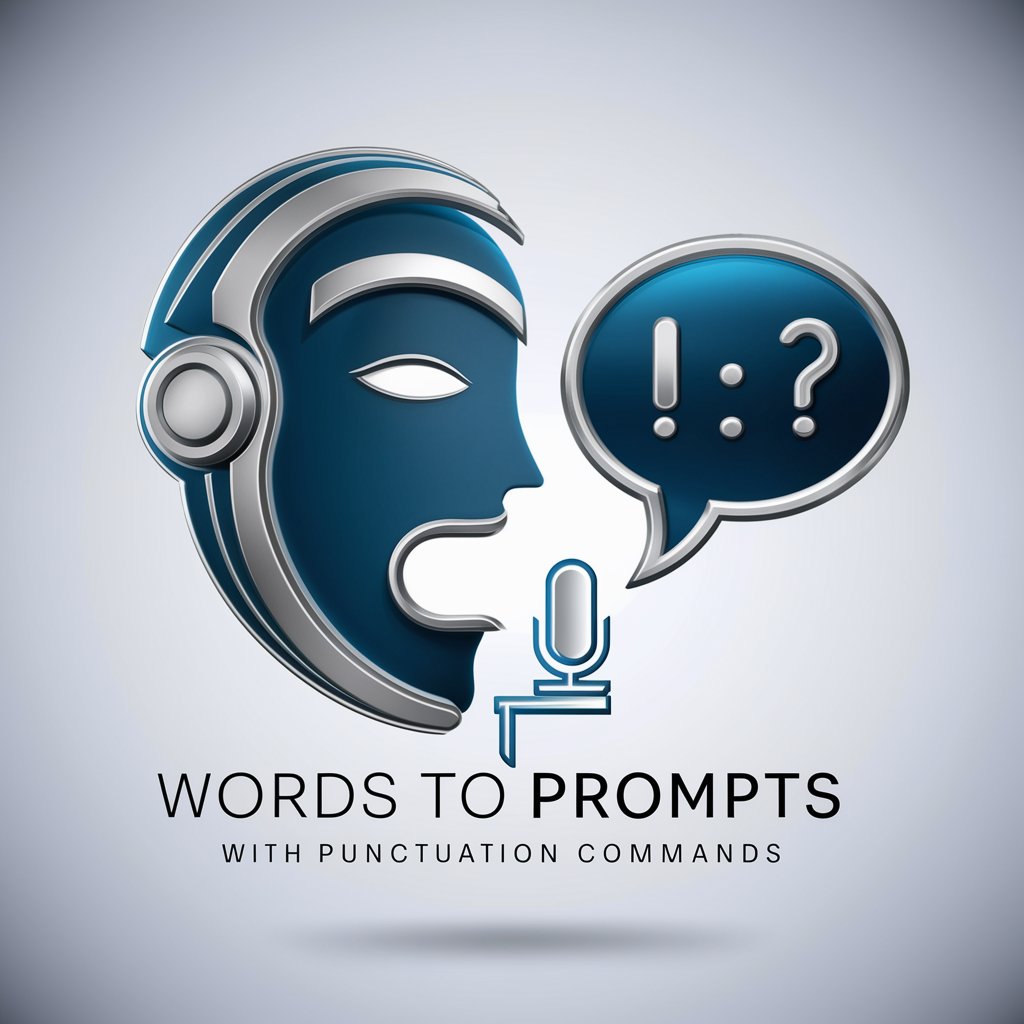
CLI Commands Pro
Empowering IT with AI-powered CLI Solutions

Bash Commands Guru
Empowering Your Command Line Journey

MC Commands Guru
Empowering Your Minecraft Gameplay with AI

Bashy: Explain Parameters of Shell Script Commands
Decoding Bash commands with AI
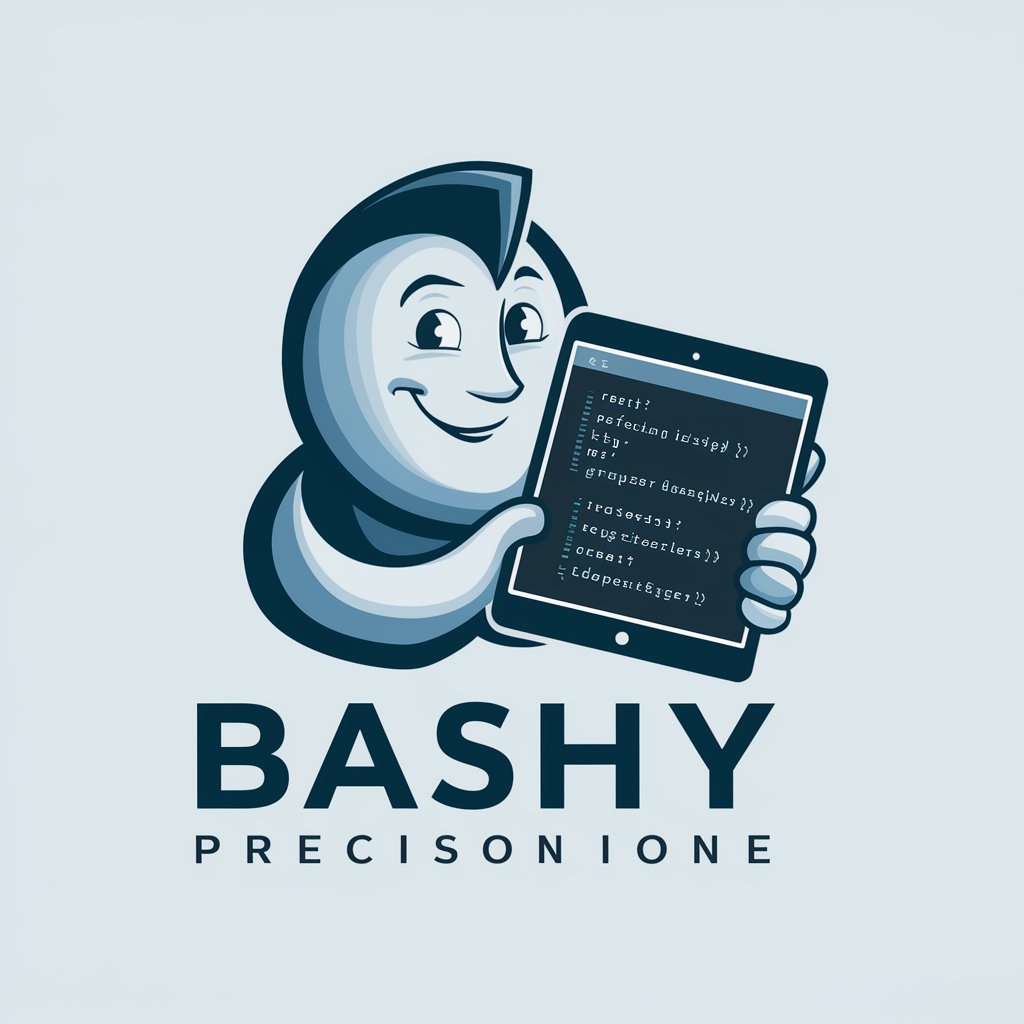
Essential Q&A on Behavioral Scientist
What makes Behavioral Scientist unique in aiding research?
It's specifically designed for behavioral scientists, incorporating advanced methodologies and data interpretation strategies tailored to behavioral research, ensuring an ethical, evidence-based approach.
Can Behavioral Scientist assist in experimental design?
Absolutely, it provides expert guidance on crafting rigorous experiments, from hypothesis formulation to variable control and result interpretation, emphasizing ethical considerations and scientific rigor.
How does Behavioral Scientist support policy analysis?
It offers insights into human behavior that can inform policy-making, suggesting interventions and predicting outcomes based on behavioral science principles.
Is Behavioral Scientist suitable for academic writing?
Yes, it supports academic writing by helping structure arguments, cite relevant studies, and ensure the use of precise scientific terminology, enhancing the quality and credibility of scholarly work.
Can Behavioral Scientist aid in understanding consumer behavior?
It can analyze and interpret consumer behavior patterns, providing valuable insights for marketing strategies, product design, and customer experience improvements.
